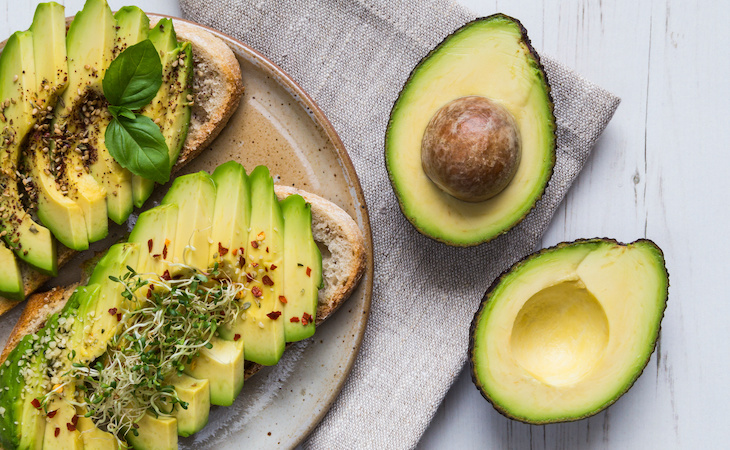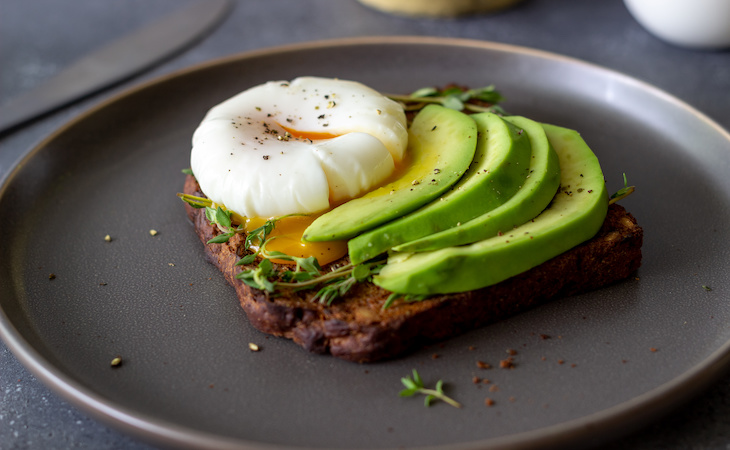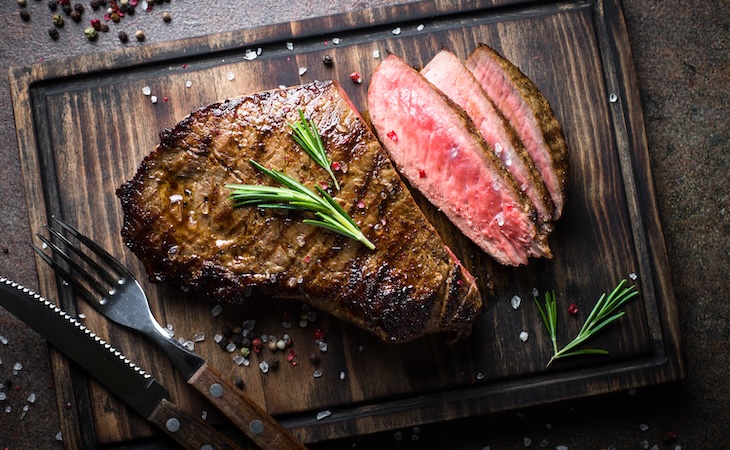It’s one of the biggest jokes on the internet: millennials spending their hard-earned money on avocado toast (often Instagrammed with perfectly sliced cherry tomatoes on top) and iced coffee. If you’re trying to get better sleep, the coffee won’t do you any good. But when it comes to avocados, the millennials might be onto something.
Avocados are a superfood packed with health benefits that include lowering cholesterol, reducing your risk of chronic disease, and improving your eye health. Plus, eating avocado before bed might even help you get better sleep.
Learn about the potential benefits of eating avocado before bed and how to add this fruit to your diet to improve your sleep.
Why avocado before bed is good for you
Key nutrition factors for sleeping well include eating enough calories and eating all macronutrients—carbs, fat, and protein, says Caroline L. Young, RD, owner and founder of Whole Self Nutrition.
“Fat is what helps food taste delicious and gets us satiated at meals and snacks,” she explains. “Nutrients in avocados that may help with sleep include fiber and fat because they both help with fullness and satisfaction, and it’s hard to [fall] asleep or stay asleep if we are still hungry.”
She adds that avocados also contain magnesium and potassium—two minerals associated with better sleep. Studies have shown magnesium might make it easier to fall asleep and improve your sleep quality. Meanwhile, potassium helps by relaxing your muscles and may even help improve symptoms of sleep apnea.
Bottom line: Eating avocado before bed could help you fall asleep more quickly, stay asleep all night, and get overall better rest.
Other health benefits of avocado
There’s much more to avocados than simply helping you get some shuteye.
“Avocados are one of the most nutrient-dense foods we can eat,” says Young. She explains that this powerhouse fruit is packed with heart-healthy unsaturated fats; essential micronutrients like vitamins and minerals; and plenty of fiber to help your digestive system keep moving along.
The nutrients that avocado contains (such as carotenoids, monounsaturated fats, potassium, and fiber) have been associated with a reduced risk of chronic disease. Avocados are a good low-carb snack and don’t increase cholesterol. They can also improve your eye health and keep your blood sugar levels steady.
How to add avocado to your diet for better sleep
Young suggests these delicious and nutritious ways to incorporate avocado into your meals throughout the day:
- Make toast with avocado slices and eggs at breakfast
- Add half an avocado to your lunch salad or sandwich
- Eat corn chips and guacamole (avocado, lime, cilantro, salt, and pepper) for a snack
- Put avocado slices in a burrito bowl with rice, veggies, and salsa for dinner
Try these late-night snacks (including avocado toast!) that improve sleep:
If you’re looking for a quick bedtime snack that will really pack a punch, consider pairing your avocado with other foods that can help with sleep. Fatty fish may improve sleep thanks to the vitamin D and omega-3 fatty acids (these nutrients regulate serotonin, which helps control your sleep).
Try making fish tacos for dinner. Or grab a handful of nuts, like almonds or walnuts, to enjoy the melatonin and magnesium alongside some avocado. Just remember to add some carbs to your snack to balance out the fat and protein.
FAQs
Is it good to eat avocado before bed?
If you’re trying to get better sleep, eating avocado before you go to bed might help. The high-fat content in avocados helps you feel full for longer so your stomach won’t be growling as you’re trying to go to sleep. And avocados are also a good source of magnesium and potassium, which are both associated with better sleep.
Is it OK to eat avocado late at night?
“It’s OK to eat avocados at any time of day,” says Young. Eating avocado at night, however, could help improve your sleep thanks to the healthy fats, magnesium, and potassium this fruit contains.
What’s the best time to eat avocado?
While there’s no wrong time to eat avocado, eating avocado before bed might help you get better sleep. Try making guacamole and pairing it with corn chips or adding avocado to a smoothie.
Is avocado hard to digest?
According to Young, avocados aren’t necessarily hard to digest. But high-fat sources like avocados do take longer to digest than carbohydrates or protein. (Good news: This means avocados will keep you full for longer!) The fiber in avocados also makes them a slower-digesting food.
Which foods should you skip at night? Here are the worst foods to eat before bed.




